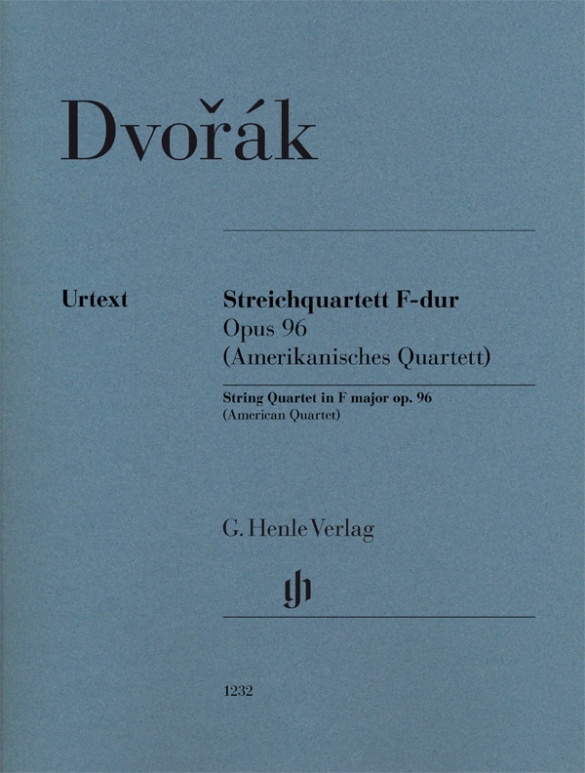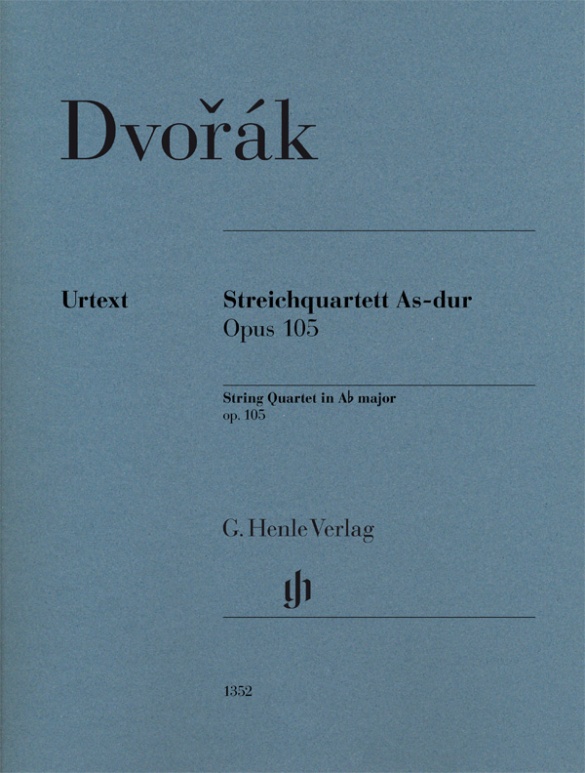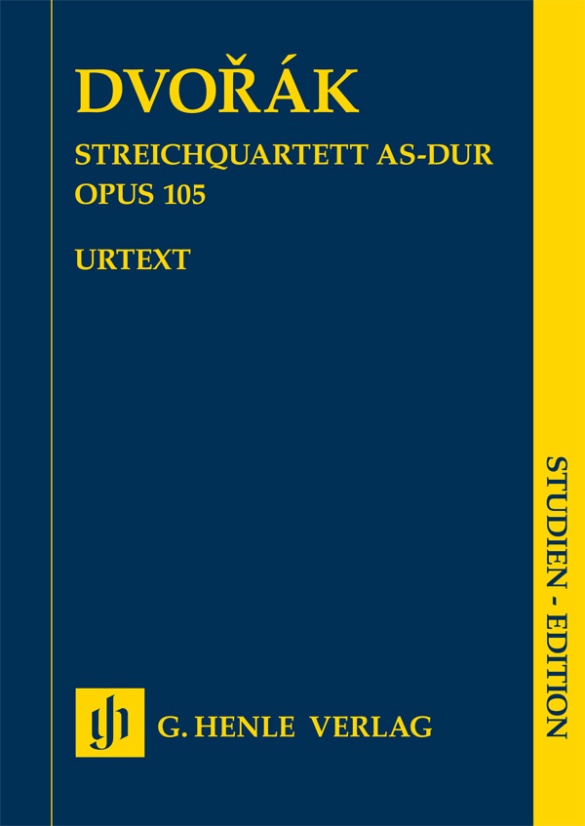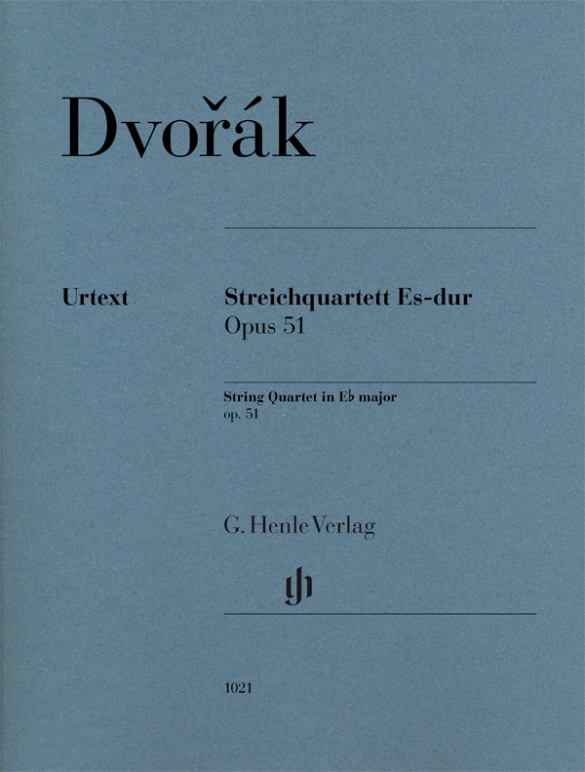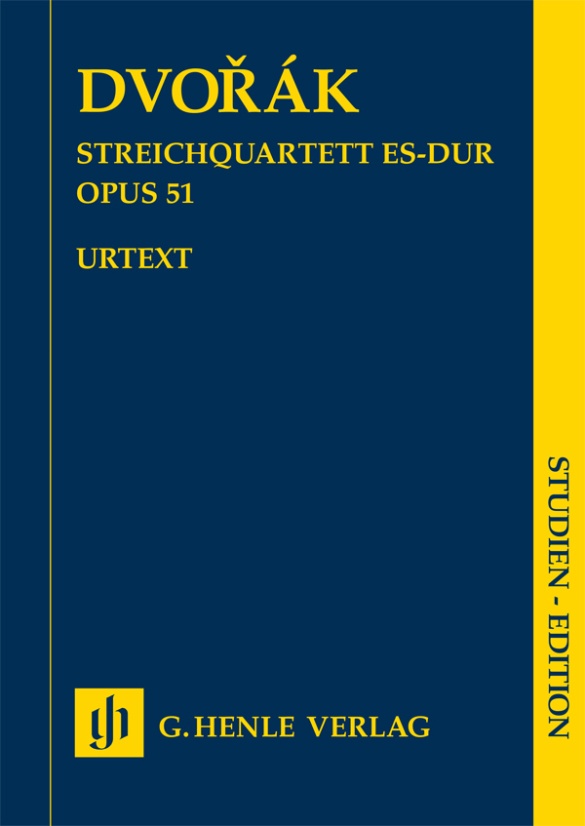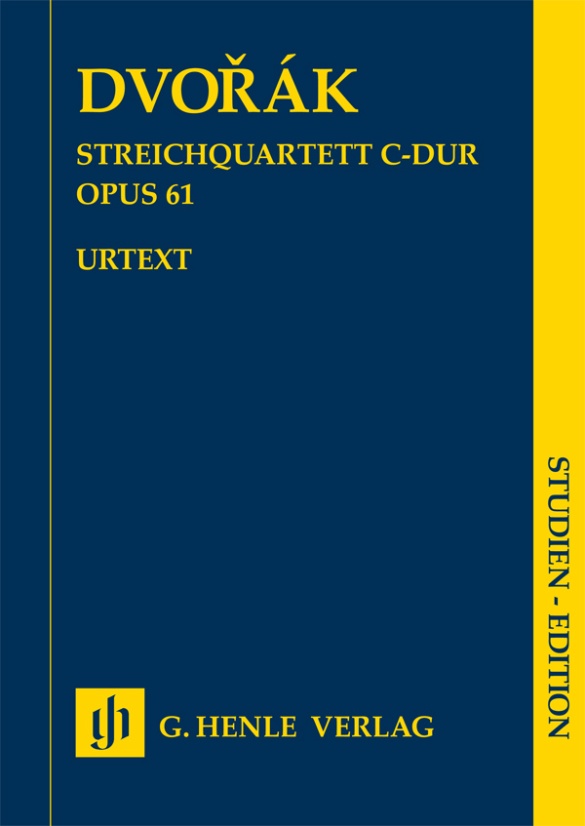Antonín Dvorák
String Quartet F major op. 96 (American Quartet)
After a twelve-year interval, Dvorák once again turned his attention to the string quartet in summer 1893. He had been musical director in New York since autumn 1892 and spent the summer in Spillville (Iowa) where a group of Czech immigrants had settled, thus making him feel at home. The beautiful natural surroundings led him to write this unconventional string quartet in the tradition of Beethoven’s “Pastoral” – even down to the imitation of birdcalls. Since the first performances, certain rhythmic and melodic characteristics have been traced back to the influences of the folk music of Native Americans and African Americans, which led to the soon popular work being called the “American Quartet”. For the first time since 1955, the quartet is once again being published in an Urtext edition.
内容/詳細
作曲家について
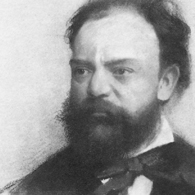
Antonín Dvorák
With Smetana he is the most famous Czech composer of the nineteenth century, contributing to the dissemination and appreciation of Czech music throughout the world. Among his around 200 works, encompassing all standard genres, are nine symphonies, fourteen string quartets, and twelve operas.
| 1841 | Born in Nelahozeves (Mühlhausen) on the Vltava River on September 8, the son of a butcher and innkeeper. |
| 1853 | Attends the training school in Zlonice; there he receives a comprehensive musical education from Josef Toman and the cantor Antonín Liehmann; subsequent education in Česká Kamenice (1856–57). |
| 1857–59 | Studies at the organ school in Prague. Until 1871 he will earn his living as a music teacher, organist, and violist. |
| 1861 | String Quintet No. 1 in A minor, considered his first work. |
| 1862 | Position as solo violist in the orchestra of the Bohemian Provisional Theater (conducted by Smetana, among others) |
| 1873 | Breakthrough with the premiere in Prague of his patriotic hymn “The Heirs of the White Mountain,” Op. 30. Employment at the private Prague School of Music. Several state scholarships. |
| 1874–77 | Organist at St. Adalbert church. |
| from 1876 | “Moravian Duets,” Opp. 20, 29, 32, and 38 (1876–77), “Slavonic Rhapsodies,” Op. 45 and the first series of “Slavonic Dances,” Op. 46 (both from 1878) enjoy great success. His fame abroad grows. |
| 1882 | Premiere of the opera “Dimitrij”, in the tradition of grand opera. |
| 1884 | First invitation to England, after which eight more will follow. |
| 1886 | Premiere of his oratorio “Saint Ludmila,” Op. 71. |
| 1891 | Professor of composition at the Prague Conservatory. |
| 1891–95 | Director of the National Conservatory of Music in New York. |
| 1893 | Premiere in New York of Symphony No. 9, “From the New World,” Op. 95 (American folkloric elements, cyclic techniques). |
| 1901 | Premiere in Prague of his most famous opera, “Rusalka.” |
| 1904 | Premiere in Prague of his last opera, “Armida.” Death in Prague on May 1. |
校訂者や運指担当者について

Peter Jost (校訂)
Dr. Peter Jost, born in 1960 in Diefflen/Saar, read musicology, German and comparative studies at Saarland University in Saarbrücken. He did his PhD in 1988 with a thesis on Robert Schumann’s Waldszenen.
From November 1991 to April 2009 he was a research associate at the Richard Wagner Complete Edition in Munich, and since May 2009 has been an editor at G. Henle Publishers. His Urtext editions comprise predominantly French music of the 19th and 20th centuries, including works by Lalo, Saint-Saëns and Ravel.
製品安全に関する情報

G. Henle Verlag
製品の製造元に関する情報はこちらでご覧いただけます。G. Henle Verlag
Forstenrieder Allee 122
81476 München
info@henle.de
www.henle.com
Jetzt steuert Peter Jost in der Urtext-Reihe bei Henle eine Neuausgabe dieses Streichquartetts F-dur op. 96 bei, Was sie auszeichnet, ist das großzügige und prägnante Schriftbild, klare Auszeichnung und günstige Wendeplätze, wofür Praktiker dankbar sind. Im (deutschen und englischen) Vorwort finden wir Details der Werkentstehung und der ausgewerteten Quellen, editorische Begründungen gelöster Problemfälle und erklärende Fußnoten und fast taktweise kritische Einzelbemerkungen.
nmz, 2016Verglichen mit den bisher erhältlichen Ausgaben hat die Neuausgabe für alle Stimmen bessere Wendestellen gefunden. Einige Fehler, die seit der Erstausgabe 1894 durch die Stimmen geistern, haben endlich ihren Platz räumen müssen und sind jetzt dort, wo sie hingehören: in den kritischen Bericht.
ESTA-Nachrichten, 2016おすすめ
autogenerated_cross_selling
このタイトルを含む他の版
このタイトルを含む他の版


